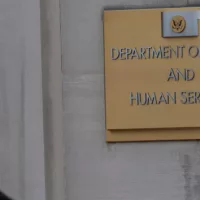
(WASHINGTON) — President-elect Donald Trump on Monday confirmed he would declare a national emergency to carry out his campaign promise of mass deportations of migrants living in the U.S. without legal permission.
Overnight, Trump responded to a social media post from Judicial Watch’s Tom Fitton, who said earlier this month there are reports the incoming administration is preparing such a declaration and to use “military assets” to deport the migrants.
“TRUE!!!” Trump wrote.
Trump pledged to get started on mass deportations as soon as he enters office.
“On Day 1, I will launch the largest deportation program in American history to get the criminals out,” he said during a rally at Madison Square Garden in the closing days of the presidential race. “I will rescue every city and town that has been invaded and conquered, and we will put these vicious and bloodthirsty criminals in jail, then kick them the hell out of our country as fast as possible.”
Already, he’s tapped several immigration hard-liners to serve in key Cabinet positions. South Dakota Gov. Kristi Noem was picked to be homeland security secretary, pending Senate confirmation. Former Acting U.S. Immigration and Customs Enforcement Director Tom Homan was named “border czar.”
Homan previously discussed his vision for mass deportations, saying they would first concentrate on expelling criminals and national security threats. He didn’t rule out deporting families together.
Throughout the campaign, Trump vowed to mobilize the National Guard to assist with the deportation effort. Experts told ABC News such a move would mark a fundamental shift for the military, which does not normally engage with domestic law enforcement issues.
At times, Trump went further, suggesting thousands of troops from overseas be moved to the U.S.-Mexico border.
There are an estimated 11 million unauthorized migrants living in the U.S. without legal immigration status. Removing them could cost billions of dollars per year, according to estimates from the American Immigration Council.
Plus, mass deportations could have a broader economic impact by resulting in a loss of tax revenue and labor shortages.
ABC News Chief Global Affairs Correspondent Martha Raddatz recently reported from California on the impact Trump’s immigration and mass deportations plans could have on the American agriculture industry.
“If you took away my workforce, you wouldn’t eat. If you go into the San Joaquin Valley and you start doing what you’re saying, it’s over. The country will stop, literally stop because the food system won’t move,” said Manuel Cunha Jr., the president of the Nisei Farmers League.
Copyright © 2024, ABC Audio. All rights reserved.















